The New Horizons survey of youth and student travel is back. Over the next few months, we will be gathering data on youth travel around the globe with the New Horizons 5 survey. Changes and trends identified in the New Horizons 5 survey will be published later this year. New Horizons has always provided a wealth of insights into the behaviour, attitudes and expenditure of young travellers, covering all facets of their journey. To remind you of some of the detail of information and insights the New Horizons survey provides, we dipped into existing data on the relationship between just two questions:
- What types of accommodation did young travellers use?
- What activities did young travellers undertake?
In terms of accommodation, the most frequently used facilities were hotels and hostels, which were both used by about 40% of youth travellers. One of the most obvious shifts in recent years has been the growth of sharing economy type accommodation, such as Airbnb, which was used by about a third of respondents in 2017. Staying with family and friends (or Visiting Friends and Relatives – VFR) is also an option for over 20% of the youth travel market.
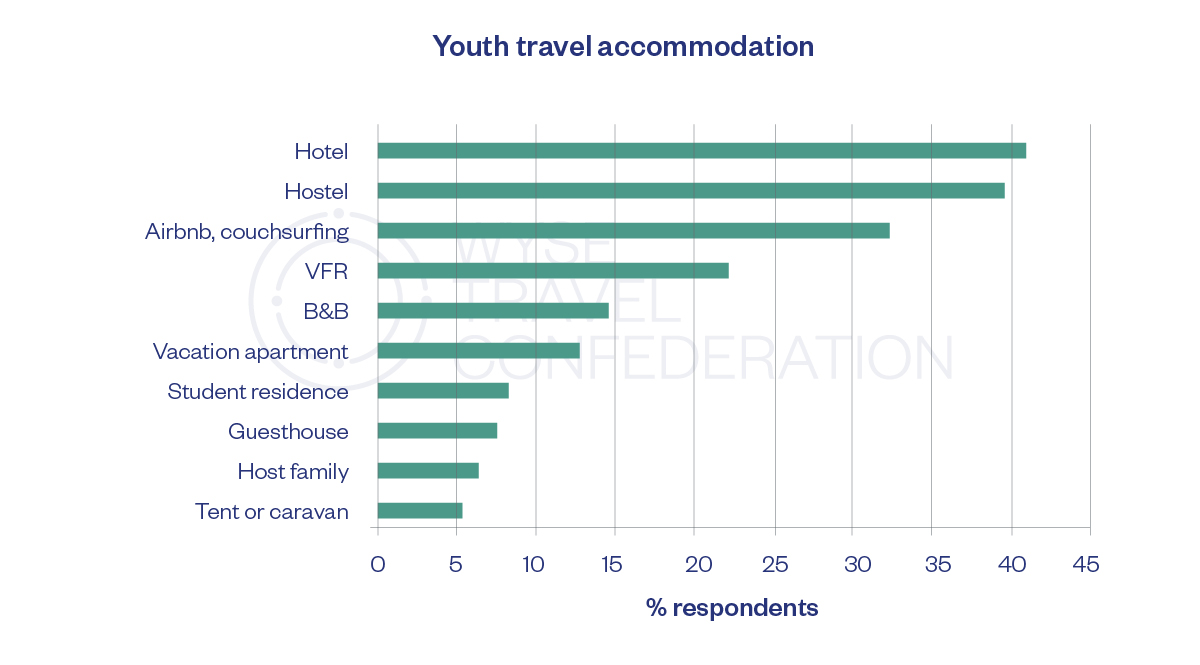
Source: New Horizons IV: A global study of the youth and student traveller, 2017
A general look at the number of activities by type of accommodation used shows that youth travellers using student residencies do most. This is almost certainly related to the relatively long stay, as well as the presence of other young people to socialise with. Hostels also tend to attract relatively active guests, even though the length of stay is usually much shorter.
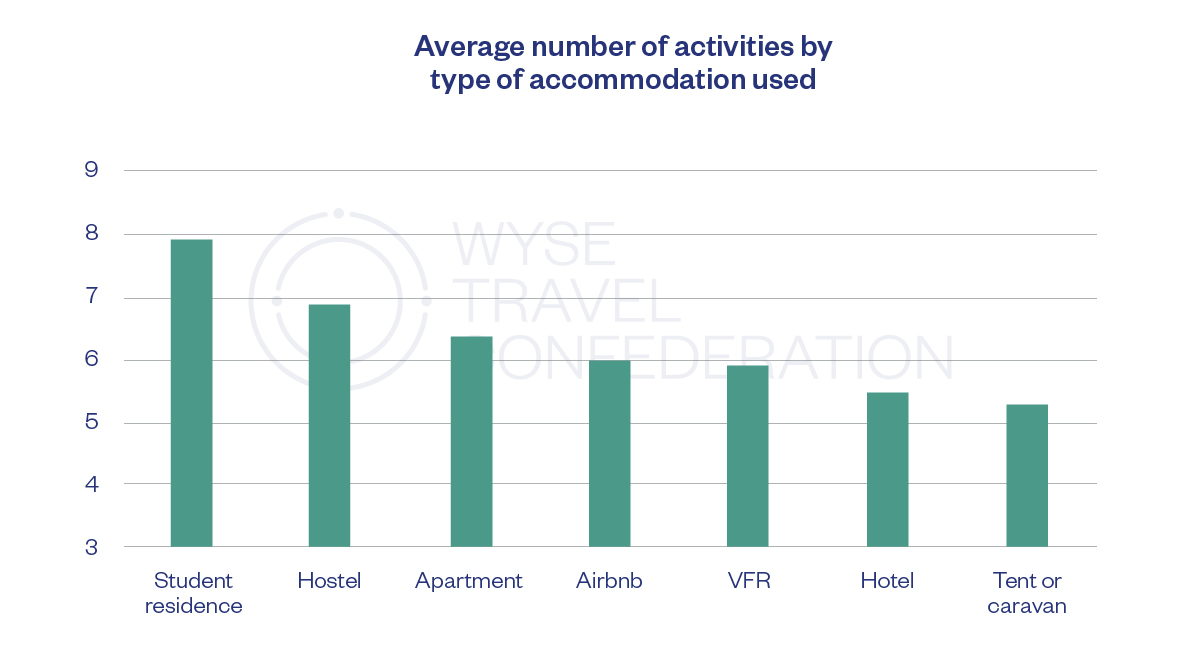
Source: New Horizons IV: A global study of the youth and student traveller, 2017
A general look at the number of activities by type of accommodation used shows that youth travellers using student residencies do most. This is almost certainly related to the relatively long stay, as well as the presence of other young people to socialise with. Hostels also tend to attract relatively active guests, even though the length of stay is usually much shorter.
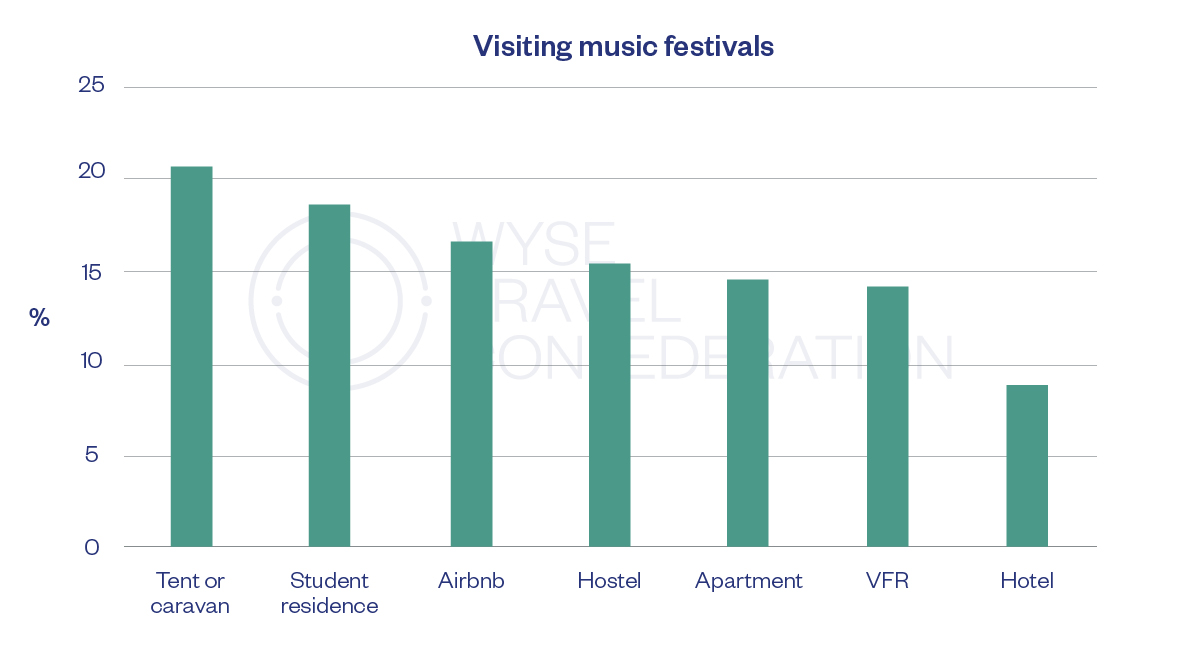
Source: New Horizons IV: A global study of the youth and student traveller, 2017
Nightclubs tend to be more common in city centres, as is also clear from the type of accommodation used by young people keen to party. Young travellers utilising student residences are top of the list for visiting nightclubs in the destination, followed by those staying in hostels. Those staying in tents will often need to find alternative options for nocturnal activities.
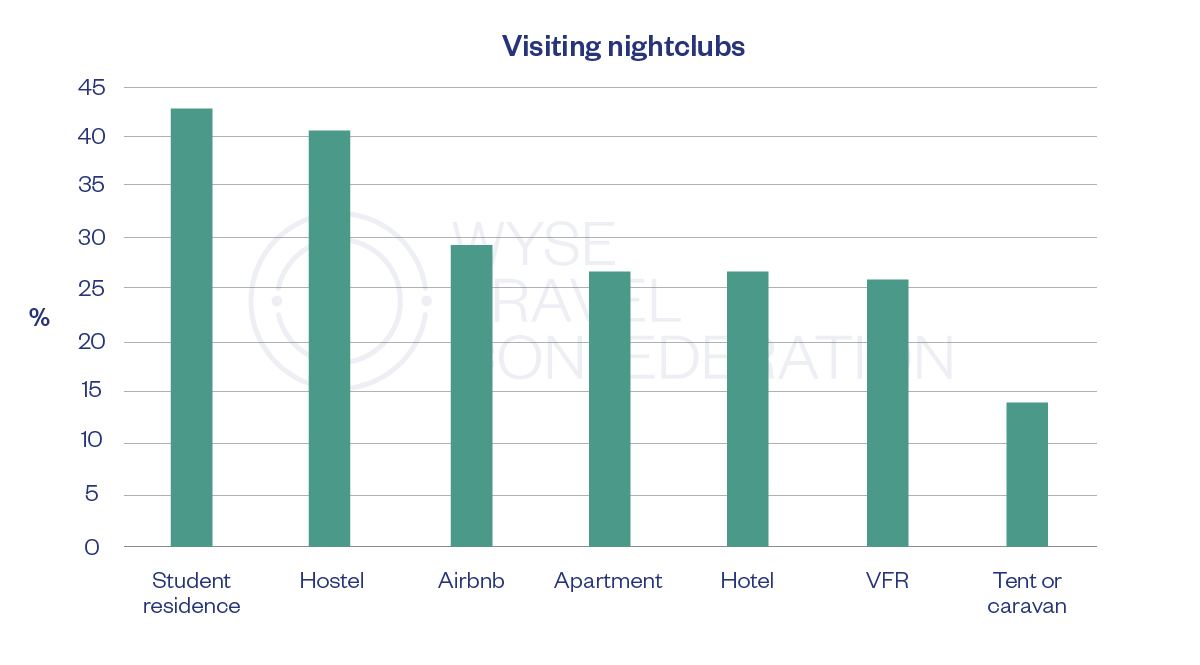
Source: New Horizons IV: A global study of the youth and student traveller, 2017
Those staying in hostels or a tent or caravan were far more likely than other youth travellers to engage in walking or hiking as an activity in the destination. In particular, those staying in a tent or caravan were also more likely to be visiting rural areas or small towns (69%), which is also likely to lead to more walking and hiking.
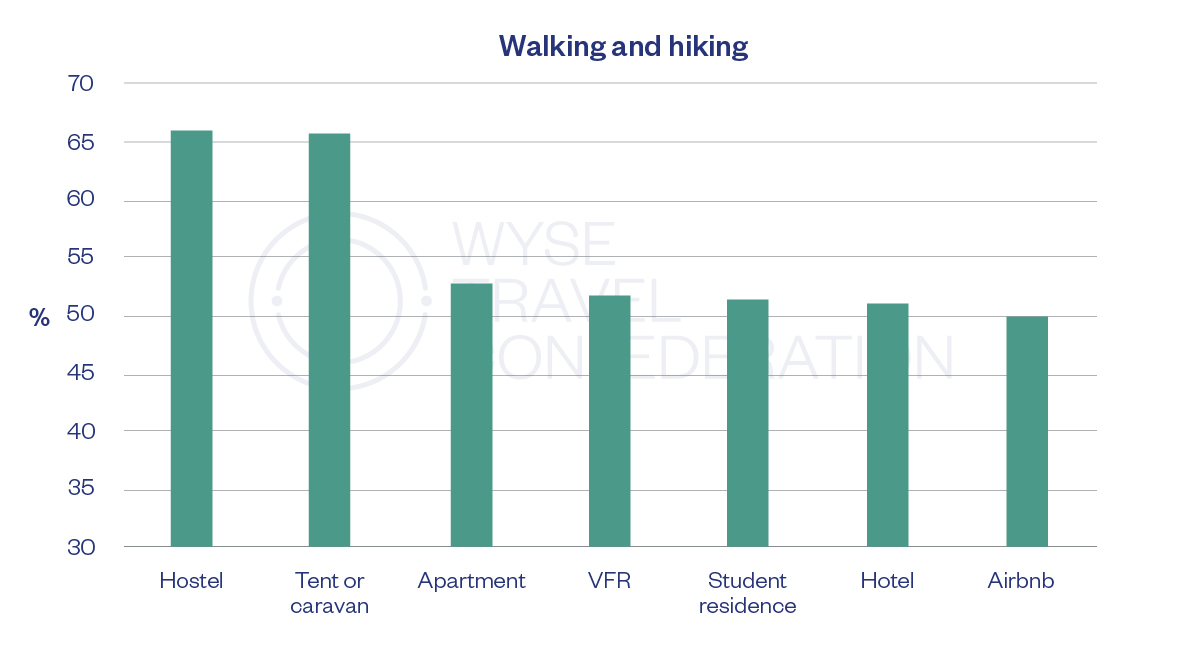
Source: New Horizons IV: A global study of the youth and student traveller, 2017
The link between staying in rural areas and camping with tent or caravan accommodation is seen even more strongly in terms of the activity of observing wildlife and nature.
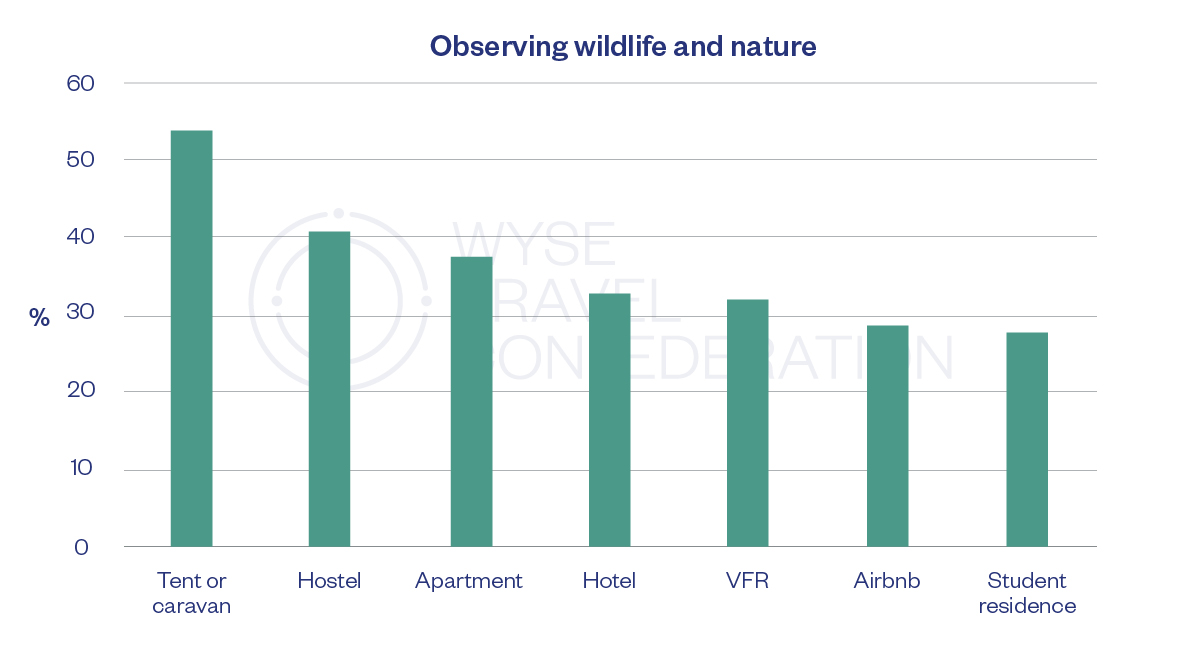
Source: New Horizons IV: A global study of the youth and student traveller, 2017
We see almost the reverse pattern for visits to museums and historic monuments, which are lowest for those staying in a tent or caravan. Rural areas tend to have less tangible heritage attractions, which are often concentrated in the city centres. This may explain why those staying in student residences have a high level of museum visits.
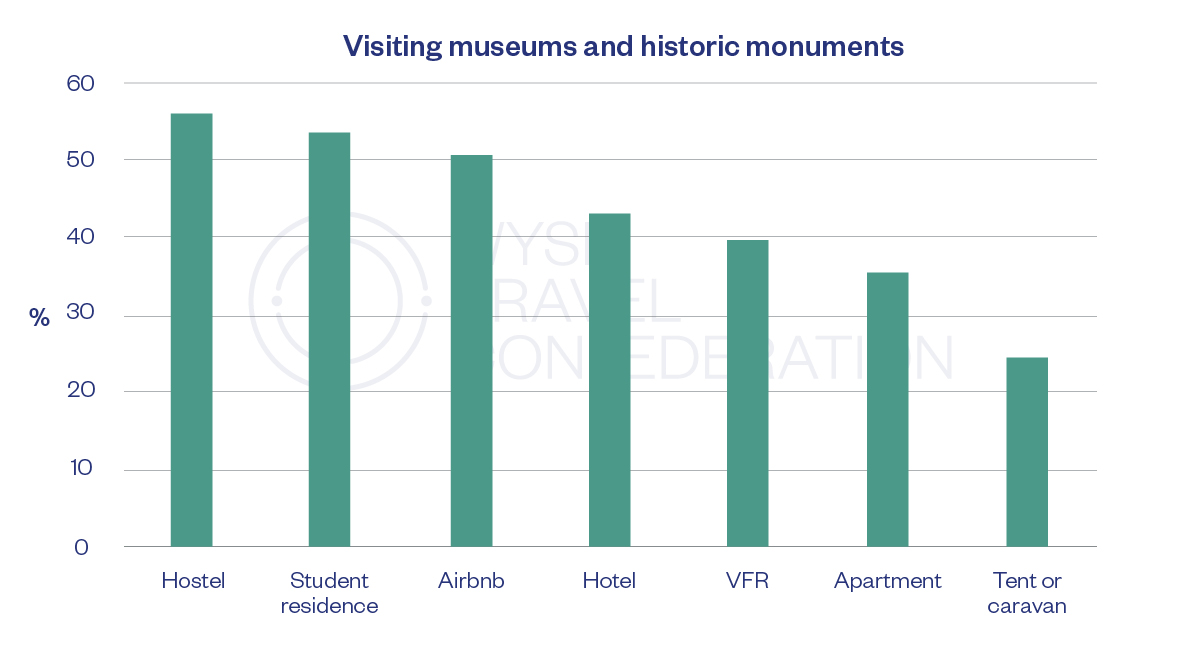
Source: New Horizons IV: A global study of the youth and student traveller, 2017
Youth travellers are most likely to feel they are ‘living like a local’ when they are staying with friends and relatives (VFR) or in a student residence. Having friends or family members locally gives visitors an immediate link to the locality, and students are likely to spend a relatively long time in a student residence, which will increase their feeling of being a ‘local’. Even though Airbnb launched its ‘live there’ campaign in 2015, this was not so strongly reflected among youth travellers using Airbnb. In fact, those staying in hostels were just as likely to have a ‘living like a local’ experience as those in an Airbnb. Not surprisingly, those with least connection to the local were hotel guests.
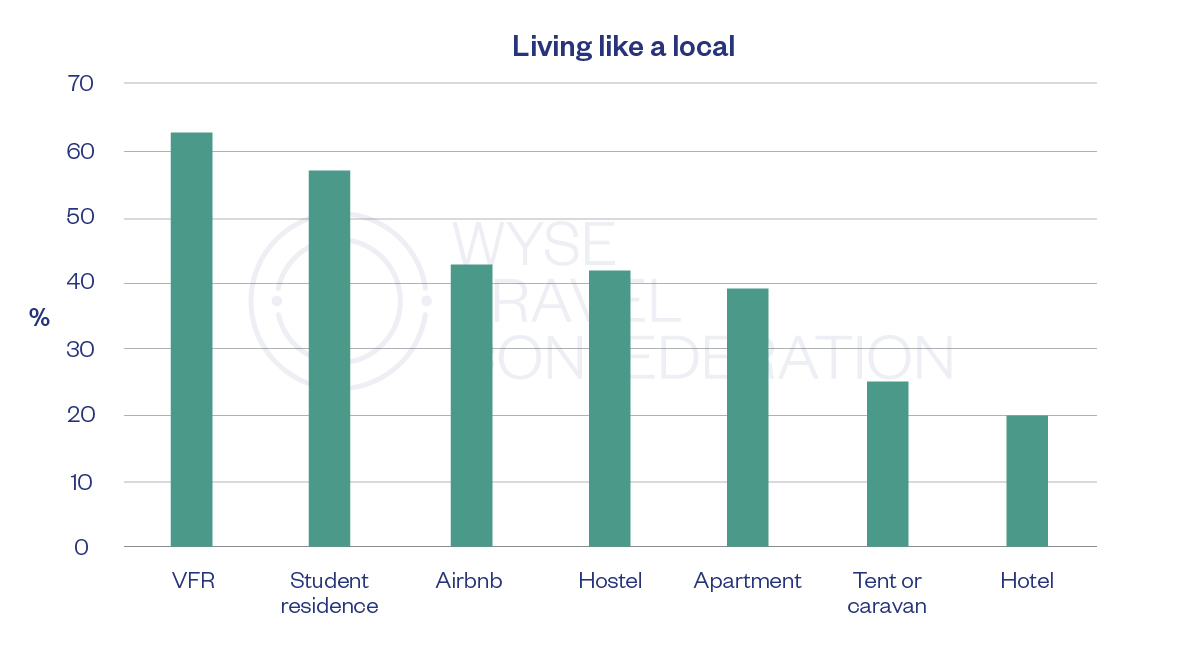
Source: New Horizons IV: A global study of the youth and student traveller, 2017
The types of activities undertaken by youth travellers in different types of accommodation also relate to their motivations. The highest levels of interaction both with locals and people from other countries are found among young travellers who used student residents and hostels. The lowest overall levels of social interaction are seen with those staying in hotels and camping style accommodation, where the focus is more clearly on interacting with people in the travel party.
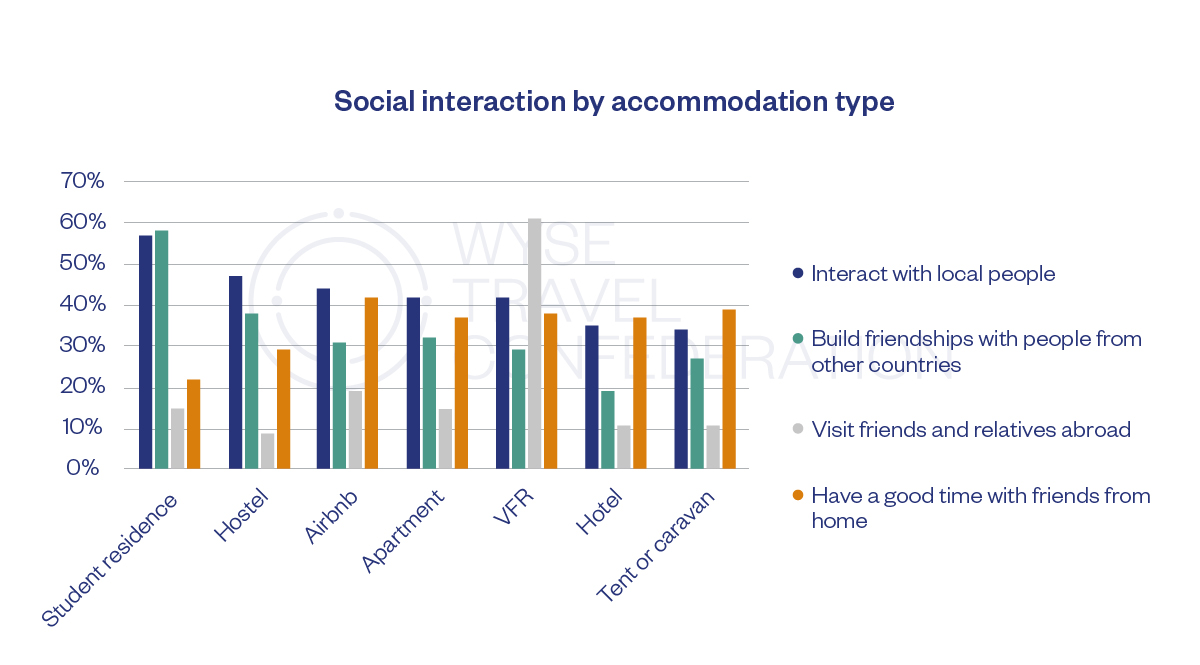
Source: New Horizons IV: A global study of the youth and student traveller, 2017
The overall conclusion from this analysis is that accommodation choice is strongly linked to the type of activities that young travellers undertake in the destination. Cities, rural areas or seaside resorts provide very different opportunities in terms of the types of activities available, which in many cases will also have an influence on the destination choice.
—
New Horizons is the only recurring global survey of the under-30 travel market. The survey combines information on the social and cultural aspects of young travellers – their backgrounds, motivations, and experiences – with data on travel behaviours such as purchasing, booking and destinations visited.
Are you interested to better understand a specific market, age group or type of travel or would you like to highlight your brand within the youth travel market? Contact us to get involved with New Horizons 5.
 |
Author Prof. Greg Richards, Professor of Placemaking and Events Breda University of Applied Sciences |

